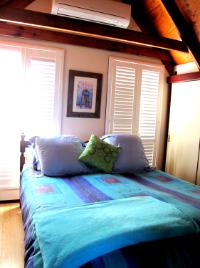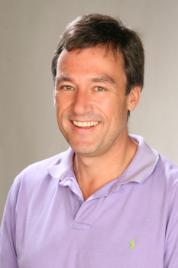Sleep researchers finding it hard to practice what they preach
Published on 05 April, 2012
CQUniversity's sleep researchers have been finding it hard to practice what they preach about getting enough sleep, since revealing Australia as a sleep-deprived nation.
The nation's largest-ever sleep census coordinated from our Appelton Institute in Adelaide has sparked a frenzy of broadcast and print media interviews.
The CQUniversity researchers worked with bed manufacturer Sealy to conduct the comprehensive sleep study, exploring the sleep habits of the nation and painting a detailed picture of exactly how well Australians are sleeping.
The Sealy Sleep Census polled 13,089 respondents and reveals Australia as a sleep-deprived nation with the vast majority of people (96%) waking up tired from their sleep, with just 4% saying they feel refreshed. The survey also reveals the alarming impact this is having on the nation's businesses and our collective health as well as our physical and emotional wellbeing.
- A whopping 96% of Aussies say they wake up tired from their sleep
- Work productivity affected: one third of respondents have called into work sick due to lack of sleep and 38% have drifted off at desk or during meetings
- Sleep disturbances affect over 70% of the population
"The census is the largest and most in-depth study of its kind ever undertaken in Australia and forms an important part of our ongoing commitment to research and innovation in the sleep arena," says Sealy's spokesperson Ross Gage.
"The study gives us valuable insight not only into the sleeping habits of Australians but also how modern technology is impacting our sleep, how our sleep routines affect men and women differently and why students think they need more sleep than anyone else!"
The survey reveals how poor sleep is impacting Australian businesses and potentially costing employers millions of dollars in lost productivity. While 30% of respondents said they have called in sick due to lack of sleep, almost 70% have admitted to their work productivity being negatively affected to some degree due to feeling tired. Shockingly, 38% of respondents said they have fallen asleep at work or during a work meeting.
There was also a significant difference in the amount of sleep needed to function effectively when it came to occupation. Management executives felt they need less sleep to function effectively (compared to than those who don't work, students, office workers, retail employees, parents, and the self-employed). Perhaps unsurprisingly, students felt they needed the most amount of sleep to function effectively and slept on average 29 minutes longer than people in any other occupation.
Management executives also felt they needed less sleep to drive a car safely than most other occupations, while stay-at-home parents conveyed the highest perceived need for sleep before driving a car.
Working habits of Australian's have also changed over the years with nearly a third of respondents indicating that they regularly work outside the hours of Monday to Friday 9am to 9pm (29.3%). (This is up from 2009 ABS figures indicating that 14% of Australians engage in shift work.)
The study also revealed that coffee drinkers sleep less, in general, than those who don't, and that those who drink more than five cups per day sleep, on average, 20 minutes less than those who don't drink coffee at all.
While the majority of respondents recognise that eight hours is the recommended amount of sleep you need to perform at your best, many of us (70%) wake up during the night due to some kind of disturbance.
External noise is a key reason for sleep interruptions, with animals contributing to 29.1%, noisy neighbors (18.5%), traffic (12.7%) and rain (16.9%) all being listed as causes of disturbance during the night. A total 35% of the respondents also said they are woken up during the night by their partners snoring, or by them going to the bathroom or answering phone calls or emails during the night.
The Census has also unearthed some other interesting facts around sleep.
-
- People who exercised reported falling asleep faster than people who don't exercise.
-
- Overall, people who owned a Sealy Posturepedic mattress reported a greater level of satisfaction with the mattress than those who owned any other brand
-
- 8.9% reported that their pets sleep on the bed with them, nearly double the amount that reported their children sleeping in bed with them (4.8%)
-
- The most popular activities in bed (aside from sleep and intimacy) are using the computer (78%), reading (60%), watching TV (36%) and organising or folding clothing (32%).
-
- 16% of respondents require some help with falling asleep, whether it be via taking supplements or prescribed medication
-
- 27% of respondents admitted to talking or being heard to talk in their sleep, but only 4% said they have been known to sleep walk
-
- 53% choose to sleep with a fitted sheet, top sheet and doona combination
-
- Those who do not have a TV obtain more sleep than those who do have a TV in their room.



